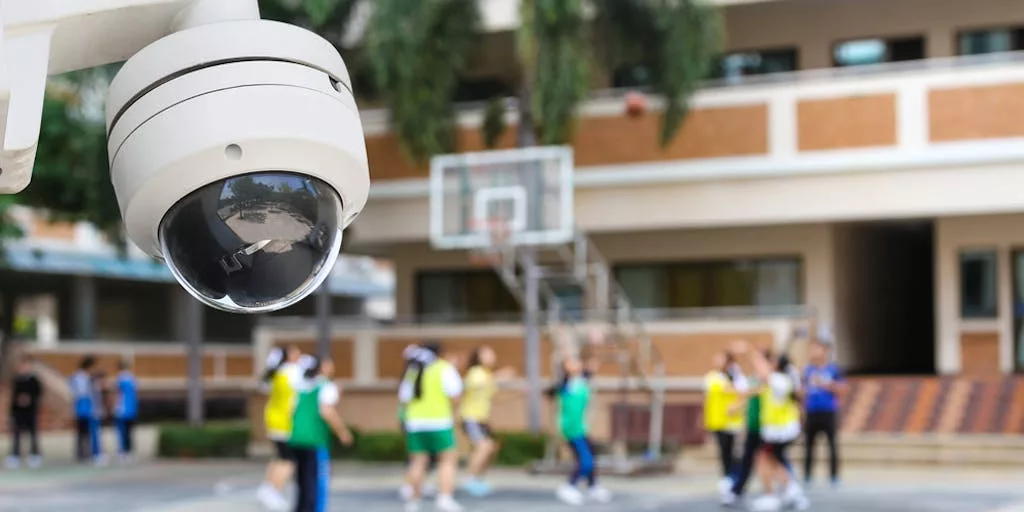[ad_1]
Edtech has come to be inseparable from the education and learning system.
But how ready are K-12 districts to deal with the thorny privacy and security concerns that these tools elevate?
Not incredibly, in accordance to “Uncovering Privacy and Safety Difficulties In K-12 Schools,” a new analyze of how districts take care of privateness and stability troubles from researchers at the College of Chicago and New York College.
But that may well be mainly simply because they’ve been unwell-equipped to do so.
Scoping the Problem
After interviewing a amount of faculty officers about privacy issues, researchers scraped 15,573 sites from K-12 public educational institutions and districts in the U.S. to uncover out which edtech goods those educational institutions most generally use or advise to students — as perfectly as what pitfalls individuals equipment increase and no matter whether colleges are geared up to fulfill them.
The study marks the first quantitative sweep of the privacy and stability snags elevated by the edtech products and solutions at this time staying used by American public universities, according to the scientists.
The resulting checklist includes several very well-recognised equipment like Zoom, Scholastic, College or university Board, Khan Academy and Clever.
Virtually all of the major internet sites connected to by schools “extensively” utilised tracking software program, in accordance to the report. The scientists also be aware that numerous sites — 7.4 percent — also employed session recorders, which are known to capture sensitive details like keystrokes.
Previous scientific tests of procedures all around college student data have unveiled that edtech providers generally don’t disclose their facts practices. And human rights teams and regulators have also raised alarms about the vulnerability posed by invasive surveillance tech and college mishandling of knowledge.
Nevertheless, the exact character of the threats edtech poses weren’t properly recognized or dealt with by schools, the most current report observed.
Administrators may perhaps not be conscious of what details edtech products they are utilizing — or the web-sites they are recommending to pupils — may well be monitoring, suggests Brandon Sloane, a researcher at New York College who labored on the report.
Vetting procedures are inclined to mention privacy but are reasonably fuzzy on the aspects, the report discovered. The final result is that universities occasionally rely on seller standing and regular-problem contracts. And at the time that edtech is ordered, community faculties really don’t have the resources or education to deal with the security and privateness threats, the research reported.
This report provides to a rising listing of research that phone calls for K-12 laws to better shield pupil privateness, at a time when industry experts say that edtech companies have place too much of the stress of ensuring info safety onto schools.
In addition to addressing considerations about students’ every day use of edtech, the study also responds to a steep enhance in cybersecurity incidents at K-12 faculties about the previous half-decade. There have been many large-profile incidents, which includes the Illuminate Training data breach that uncovered the details of hundreds of countless numbers of students.
These incidents — ranging from breaches to ransomware assaults like the just one that hit Los Angeles Unified School District, the 2nd largest in the place, very last yr — have been famous for imperiling sensitive info, and also for becoming a stealth result in of “learning loss” considering the fact that the disruption can force colleges to near for a time.
What Next?
Regulators have started to wake up to this situation, with think tanks describing them selves as relatively optimistic in excess of the laws that arrived out at the finish of last calendar year, and some researchers are contacting for adjustments to federal legislation that would better safeguard college student privacy.
In the meantime, this newest analyze calls awareness to the usefulness of point out regulations.
State rules that specify privateness criteria for edtech providers have assisted woefully less than-resourced colleges, claims Jake Chanenson, a Ph.D. applicant at the College of Chicago who helped conduct the report. Some districts in Connecticut and Illinois were being specially ahead of the curve, he says.
“They credited their condition knowledge privacy rules as getting part of the motive why they are on prime of it,” Chanenson adds.
But what ought to educators do?
Pushing for more education is excellent, Chanenson claims. The skilled advancement days that educational facilities have on tech should really also feature pupil privateness as a theme, he provides.
Even further, instructors really should also be conscientious when contemplating if a new edtech product or service actually provides legit price to teaching, he claims.
[ad_2]
Resource url
Meet Our Successful Graduates: Learn how our courses have propelled graduates into rewarding
careers. Explore their success stories here!
Discover More About Your Future: Interested in advancing your teaching career? Explore our
IPGCE, MA, and QTS courses today!

Explore Our Courses: Ready to take the next
step in your education journey? View our
comprehensive course offerings now!

